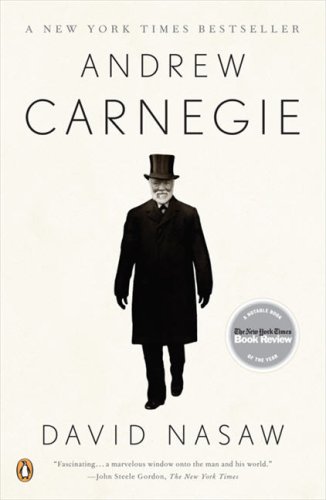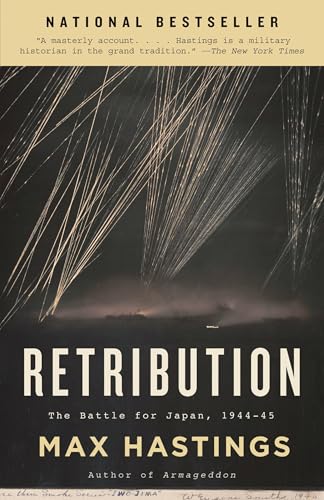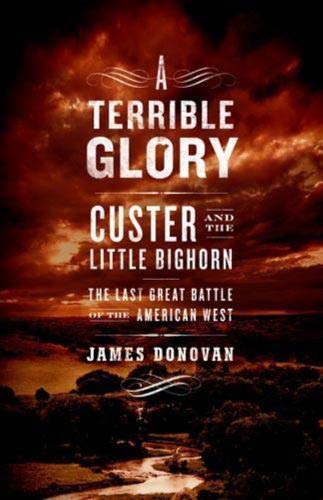Outstanding Non-Fiction
Discover the best outstanding non-fiction books with our curated list. Explore top-rated titles that inform, inspire, and captivate readers worldwide.


Book
Undaunted Courage
by Stephen E. Ambrose
From the New York Times bestselling author of Band of Brothers and D-Day, the definitive book on Lewis and Clark’s exploration of the Louisiana Purchase, the most momentous expedition in American history and one of the great adventure stories of all time. In 1803 President Thomas Jefferson selected his personal secretary, Captain Meriwether Lewis, to lead a voyage up the Missouri River to the Rockies, over the mountains, down the Columbia River to the Pacific Ocean, and back. Lewis and his partner, Captain William Clark, made the first map of the trans-Mississippi West, provided invaluable scientific data on the flora and fauna of the Louisiana Purchase territory, and established the American claim to Oregon, Washington, and Idaho. Ambrose has pieced together previously unknown information about weather, terrain, and medical knowledge at the time to provide a vivid backdrop for the expedition. Lewis is supported by a rich variety of colorful characters, first of all Jefferson himself, whose interest in exploring and acquiring the American West went back thirty years. Next comes Clark, a rugged frontiersman whose love for Lewis matched Jefferson’s. There are numerous Indian chiefs, and Sacagawea, the Indian girl who accompanied the expedition, along with the French-Indian hunter Drouillard, the great naturalists of Philadelphia, the French and Spanish fur traders of St. Louis, John Quincy Adams, and many more leading political, scientific, and military figures of the turn of the century. High adventure, high politics, suspense, drama, and diplomacy combine with high romance and personal tragedy to make this outstanding work of scholarship as readable as a novel.


Book
Nothing Like It In the World
by Stephen E. Ambrose
The story of the men who build the transcontinental railroad in the 1860's.

Book
Into Thin Air
by Jon Krakauer
#1 NATIONAL BESTSELLER • The epic account of the storm on the summit of Mt. Everest that claimed five lives and left countless more—including Krakauer's—in guilt-ridden disarray. "A harrowing tale of the perils of high-altitude climbing, a story of bad luck and worse judgment and of heartbreaking heroism." —PEOPLE A bank of clouds was assembling on the not-so-distant horizon, but journalist-mountaineer Jon Krakauer, standing on the summit of Mt. Everest, saw nothing that "suggested that a murderous storm was bearing down." He was wrong. By writing Into Thin Air, Krakauer may have hoped to exorcise some of his own demons and lay to rest some of the painful questions that still surround the event. He takes great pains to provide a balanced picture of the people and events he witnessed and gives due credit to the tireless and dedicated Sherpas. He also avoids blasting easy targets such as Sandy Pittman, the wealthy socialite who brought an espresso maker along on the expedition. Krakauer's highly personal inquiry into the catastrophe provides a great deal of insight into what went wrong. But for Krakauer himself, further interviews and investigations only lead him to the conclusion that his perceived failures were directly responsible for a fellow climber's death. Clearly, Krakauer remains haunted by the disaster, and although he relates a number of incidents in which he acted selflessly and even heroically, he seems unable to view those instances objectively. In the end, despite his evenhanded and even generous assessment of others' actions, he reserves a full measure of vitriol for himself. This updated trade paperback edition of Into Thin Air includes an extensive new postscript that sheds fascinating light on the acrimonious debate that flared between Krakauer and Everest guide Anatoli Boukreev in the wake of the tragedy. "I have no doubt that Boukreev's intentions were good on summit day," writes Krakauer in the postscript, dated August 1999. "What disturbs me, though, was Boukreev's refusal to acknowledge the possibility that he made even a single poor decision. Never did he indicate that perhaps it wasn't the best choice to climb without gas or go down ahead of his clients." As usual, Krakauer supports his points with dogged research and a good dose of humility. But rather than continue the heated discourse that has raged since Into Thin Air's denouncement of guide Boukreev, Krakauer's tone is conciliatory; he points most of his criticism at G. Weston De Walt, who coauthored The Climb, Boukreev's version of events. And in a touching conclusion, Krakauer recounts his last conversation with the late Boukreev, in which the two weathered climbers agreed to disagree about certain points. Krakauer had great hopes to patch things up with Boukreev, but the Russian later died in an avalanche on another Himalayan peak, Annapurna I. In 1999, Krakauer received an Academy Award in Literature from the American Academy of Arts and Letters--a prestigious prize intended "to honor writers of exceptional accomplishment." According to the Academy's citation, "Krakauer combines the tenacity and courage of the finest tradition of investigative journalism with the stylish subtlety and profound insight of the born writer. His account of an ascent of Mount Everest has led to a general reevaluation of climbing and of the commercialization of what was once a romantic, solitary sport; while his account of the life and death of Christopher McCandless, who died of starvation after challenging the Alaskan wilderness, delves even more deeply and disturbingly into the fascination of nature and the devastating effects of its lure on a young and curious mind."


Book
Titan
by Ron Chernow
National Book Critics Circle Award Finalist From the acclaimed, award-winning author of Alexander Hamilton: here is the essential, endlessly engrossing biography of John D. Rockefeller, Sr.—the Jekyll-and-Hyde of American capitalism. In the course of his nearly 98 years, Rockefeller was known as both a rapacious robber baron, whose Standard Oil Company rode roughshod over an industry, and a philanthropist who donated money lavishly to universities and medical centers. He was the terror of his competitors, the bogeyman of reformers, the delight of caricaturists—and an utter enigma. Drawing on unprecedented access to Rockefeller’s private papers, Chernow reconstructs his subjects’ troubled origins (his father was a swindler and a bigamist) and his single-minded pursuit of wealth. But he also uncovers the profound religiosity that drove him “to give all I could”; his devotion to his father; and the wry sense of humor that made him the country’s most colorful codger. Titan is a magnificent biography—balanced, revelatory, elegantly written.


Book
In Harm's Way
by Doug Stanton
Chronicles the worst disaster in U.S. naval history, describing heroism in the face of persistant shark attacks and hypothermia after the sinking of the U.S.S. Indianapolis in the South Pacific in the final days of World War II.



Book
Seventeen Seventy-six
by David McCullough
"As the crucial weeks pass, defeat follows defeat, and in the long retreat across New Jersey, all hope seems gone, until Washington launches the "brilliant stroke" that will change history."--BOOK JACKET.

Book
Caesar
by Christian Meier
As politician and diplomat, writer and lover, but above all as a military genius, Julius Caesar is one of the perennially fascinating figures in history—Boswell called him ”the greatest man of any age.” Christian Meier's authoritative and accessible biography is the definitive modern account of Caesar's life and career, setting Caesar's life story against the rich political and social background of the Late Roman Republic.


Book
Johnstown Flood
by David McCullough
A graphic account of the collapse of a poorly constructed dam and the resulting flood which killed 2,000 people and caused a nationwide scandal.

Book
Path Between The Seas
by David McCullough
The National Book Award–winning epic chronicle of the creation of the Panama Canal, a first-rate drama of the bold and brilliant engineering feat that was filled with both tragedy and triumph, told by master historian David McCullough. From the Pulitzer Prize–winning author of Truman, here is the national bestselling epic chronicle of the creation of the Panama Canal. In The Path Between the Seas, acclaimed historian David McCullough delivers a first-rate drama of the sweeping human undertaking that led to the creation of this grand enterprise. The Path Between the Seas tells the story of the men and women who fought against all odds to fulfill the 400-year-old dream of constructing an aquatic passageway between the Atlantic and Pacific oceans. It is a story of astonishing engineering feats, tremendous medical accomplishments, political power plays, heroic successes, and tragic failures. Applying his remarkable gift for writing lucid, lively exposition, McCullough weaves the many strands of the momentous event into a comprehensive and captivating tale. Winner of the National Book Award for history, the Francis Parkman Prize, the Samuel Eliot Morison Award, and the Cornelius Ryan Award (for the best book of the year on international affairs), The Path Between the Seas is a must-read for anyone interested in American history, the history of technology, international intrigue, and human drama.


Book
John Adams
by David McCullough
Profiles John Adams, an influential patriot during the American Revolution who became the nation's first vice president and second president.


Book
The Blue Nile
by Alan Moorehead
In the first half of the nineteenth century, only a small handful of Westerners had ventured into the regions watered by the Nile River on its long journey from Lake Tana in Abyssinia to the Mediterranean-lands that had been forgotten since Roman times, or had never been known at all. In The Blue Nile, Alan Moorehead continues the classic, thrilling narration of adventure he began in The White Nile, depicting this exotic place through the lives of four explorers so daring they can be considered among the world's original adventurers -- each acting and reacting in separate expeditions against a bewildering background of slavery and massacre, political upheaval and all-out war.




Book
Team of Rivals
by Doris Kearns Goodwin
On May 18, 1860, William H. Seward, Salmon P. Chase, Edward Bates, and Abraham Lincoln waited in their hometowns for the results from the Republican National Convention in Chicago. When Lincoln emerged as the victor, his rivals were dismayed and angry. Throughout the turbulent 1850s, each had energetically sought the presidency as the conflict over slavery was leading inexorably to secession and civil war. That Lincoln succeeded was the result of a character that had been forged by life experiences that raised him above his more privileged and accomplished rivals. He won because hepossessed an extraordinary ability to put himself in the place of other men, to experience what they were feeling, to understand their motives and desires. This capacity enabled President Lincoln to bring his disgruntled opponents together, create the most unusual cabinet in history, and marshal their talents to preserve the Union and win the war.


Book
Peter the Great: His Life and World
by Robert K. Massie
PULITZER PRIZE WINNER • An “urgently readable” (Newsweek) biography of the captivating tsar who changed Russian history—from the New York Times bestselling author of Nicholas and Alexandra, The Romanovs, and Catherine the Great “Enthralling . . . as fascinating as any novel and more so than most.”—The New York Times Book Review Against the monumental canvas of seventeenth- and eighteenth-century Europe and Russia unfolds the magnificent story of Peter the Great, crowned co-tsar at the age of ten. Robert K. Massie delves deep into his life, chronicling the pivotal events that shaped a boy into a legend—including his “incognito” travels in Europe, his unquenchable curiosity about Western ways, his obsession with the sea and establishment of the stupendous Russian navy, his creation of an unbeatable army, his transformation of Russia, and his relationships with those he loved most: Catherine, the robust yet gentle peasant, his loving mistress, wife, and successor; and Menshikov, the charming, bold, unscrupulous prince who rose to wealth and power through Peter’s friendship. Impetuous and stubborn, generous and cruel, tender and unforgiving, a man of enormous energy and complexity, Peter the Great is brought fully to life.







Book
A History of the American People
by Paul Johnson
"The creation of the United States of America is the greatest of all human adventures," begins Paul Johnson's remarkable new American history. "No other national story holds such tremendous lessons, for the American people themselves and for the rest of mankind." Johnson's history is a reinterpretation of American history from the first settlements to the Clinton administration. It covers every aspect of U.S. history--politics; business and economics; art, literature and science; society and customs; complex traditions and religious beliefs. The story is told in terms of the men and women who shaped and led the nation and the ordinary people who collectively created its unique character. Wherever possible, letters, diaries, and recorded conversations are used to ensure a sense of actuality. "The book has new and often trenchant things to say about every aspect and period of America's past," says Johnson, "and I do not seek, as some historians do, to conceal my opinions." Johnson's history presents John Winthrop, Roger Williams, Anne Hutchinson, Cotton Mather, Franklin, Tom Paine, Washington, Adams, Jefferson, Hamilton, and Madison from a fresh perspective. It emphasizes the role of religion in American history and how early America was linked to England's history and culture and includes incisive portraits of Andrew Jackson, Chief Justice Marshall, Clay, Lincoln, and Jefferson Davis. Johnson shows how Grover Cleveland and Teddy Roosevelt ushered in the age of big business and industry and how Woodrow Wilson revolutionized the government's role. He offers new views of Harding, Coolidge, and Hoover and of Franklin Roosevelt's New Deal and his role as commander in chief during World War II. An examination of the unforeseen greatness of Harry Truman and reassessments of Eisenhower, Kennedy, Johnson, Nixon, Reagan, and Bush follow. "Compulsively readable," said Foreign Affairs of Johnson's unique narrative skills and sharp profiles of people. This is an in-depth portrait of a great people, from their fragile origins through their struggles for independence and nationhood, their heroic efforts and sacrifices to deal with the `organic sin' of slavery and the preservation of the Union to its explosive economic growth and emergence as a world power and its sole superpower. Johnson discusses such contemporary topics as the politics of racism, education, Vietnam, the power of the press, political correctness, the growth of litigation, and the rising influence of women. He sees Americans as a problem-solving people and the story of America as "essentially one of difficulties being overcome by intelligence and skill, by faith and strength of purpose, by courage and persistence...Looking back on its past, and forward to its future, the auguries are that it will not disappoint humanity." This challenging narrative and interpretation of American history by the author of many distinguished historical works is sometimes controversial and always provocative. Johnson's views of individuals, events, themes, and issues are original, critical, and admiring, for he is, above all, a strong believer in the history and the destiny of the American people.





Book
The Wives of Henry VIII
by Antonia Fraser
The New York Times bestselling history of the legendary six wives of Henry VIII--from the acclaimed author of Marie Antoinette. Under Antonia Fraser's intent scrutiny, Catherine of Aragon emerges as a scholar-queen who steadfastly refused to grant a divorce to her royal husband; Anne Boleyn is absolved of everything but a sharp tongue and an inability to produce a male heir; and Catherine Parr is revealed as a religious reformer with the good sense to tack with the treacherous winds of the Tudor court. And we gain fresh understanding of Jane Seymour's circumspect wisdom, the touching dignity of Anna of Cleves, and the youthful naivete that led to Katherine Howard's fatal indiscretions. The Wives of Henry VIII interweaves passion and power, personality and politics, into a superb work of history.

